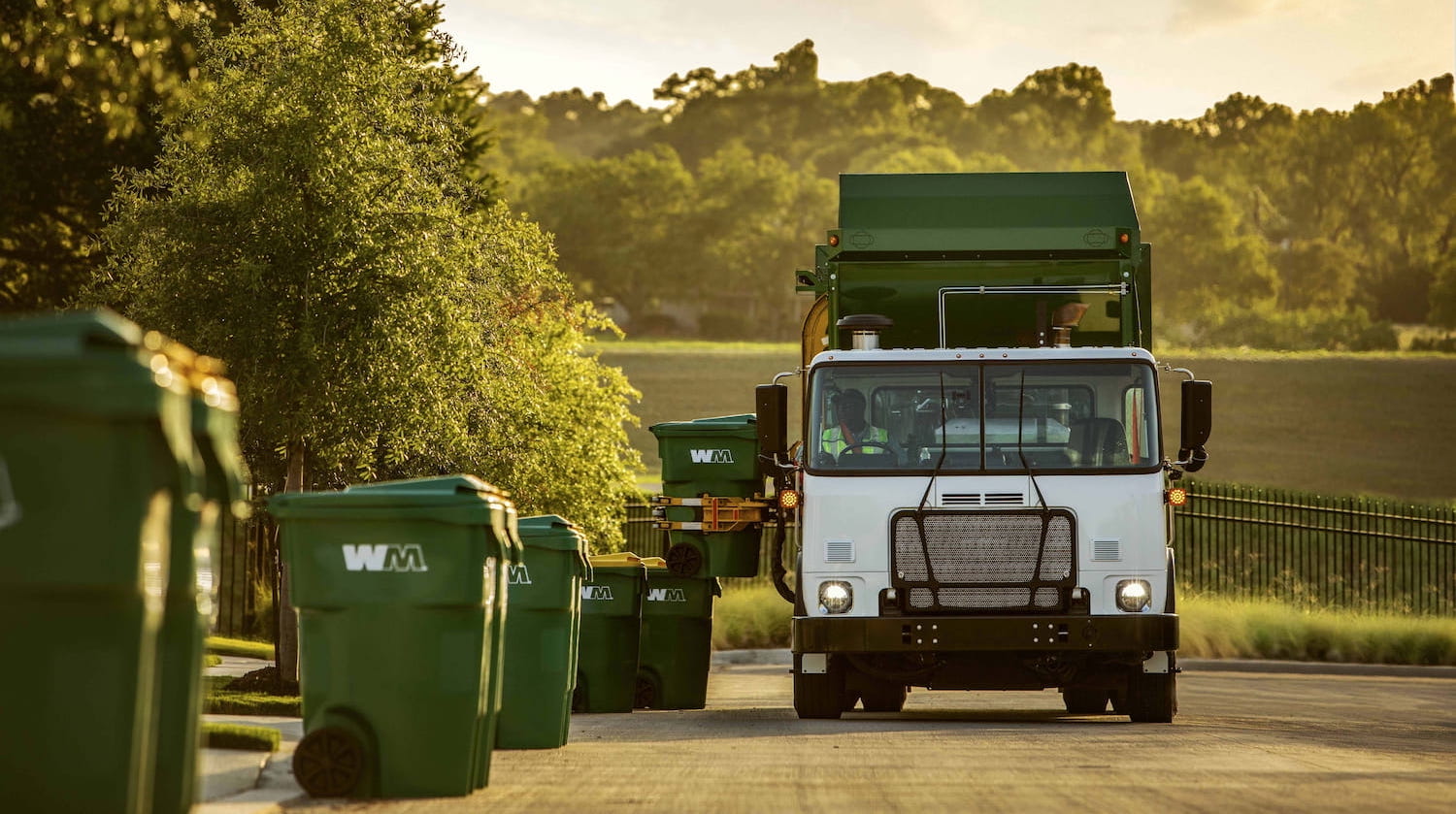If a holiday falls on a weekday, collections for the rest of the week will be pushed back a day. For example, for a Thursday holiday, service would be on Friday, and Friday service would be Saturday. For holidays on Saturday or Sunday, there are no delays.
Home Waste Service in Oceanside, CA
Trash, Recycling & Organic Waste Pickup
Oceanside has partnered with WM to provide residential waste service that sets the standard for sustainable trash disposal and recycling.

Holiday Schedule
Check for holidays that may affect your service
Service Guides & Instructions
WM provides a 32 gallon cart (gray) for weekly trash collection. You may request a 64 or 96 gallon cart for an additional charge.
To view your specific service day, please click here, enter your address and select “Verify”.
Place container on the street with wheels against the curb by 6 a.m. on collection days and remove same day. Keep container at least two (2) feet from parked cars, mailboxes, and other obstacles that may prevent WM team members from picking it up. Also, make sure carts are out from under trees or any overhead items.
All trash should be bagged. Do not overfill your container – the lid must close tightly. Overflow and materials outside may be subject to additional charge or may not be collected.
As of January 1, 2022, SB 1383 requires Californians to sort and separately collect food scraps, yard debris, and food-soiled paper from trash and recycling. This means food scraps are no longer acceptable in your trash container. For more information on SB 1383, visit wm.com/SB1383
Acceptable items include standard household trash like chip bags, plastic bags, and textiles (donate if lightly used).
Non-acceptable items include construction waste, auto parts, tires, household hazardous waste (paint, oil, household cleaners), medical or electronic waste, and food scraps.
For new service starts, please submit a request for help by clicking here. Select “Continue as Guest,” enter your address, and follow the prompts to submit a request. Additionally, you can contact us at 760-439-2824.
Place your carts at the curb by 6 a.m. on service day to avoid service interruption. Occasionally unforeseen circumstances may arise and services could be delayed. If you are not serviced by the end of the day, please contact WM at 760-439-2824. Collection will be completed by the next business day.
Additional carts are available for a fee. Click here to submit a request for help to make changes to your service. Select “Continue as Guest,” enter your address, and follow the prompts to submit a request.
Carts may be exchanged at no charge annually for any reason including if damaged or inoperable. Please visit our support article, scroll to the “Residential” section, click “Get Started,” and enter your address.
Questions? Unable to submit your request? Please scroll to the bottom of the article to ”Request Help”.
Alternativelly, contact WM at 760-439-2824 or via email at [email protected].
The Local Leader in Waste Management
Communities across North America trust WM for residential waste and recycling services.
We take the utmost care in everything we do — from collecting your trash and recycling to defining the future of sustainable waste management. WM is more than your waste services provider. We're your neighbors — proudly serving our community and our planet.
Need help?
Find a solution online or connect with a support agent.